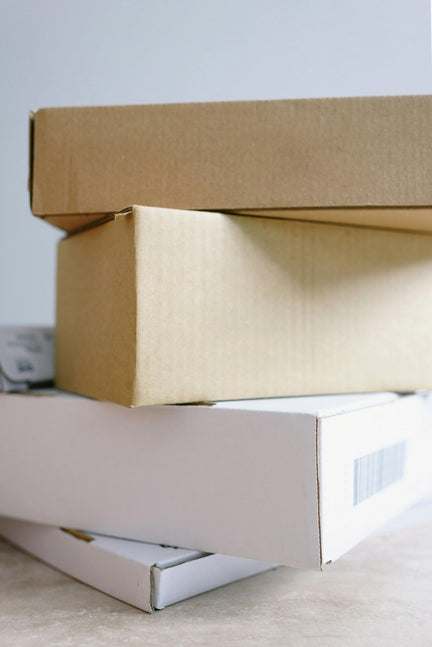Sustainability practices are becoming more important to the ecommerce landscape. According to a recent survey, 66% of all respondents and 75% of millennial respondents say that they consider sustainability when they make a purchase.
Gone are the days when recyclable packaging will suffice for consumers—now they look for companies who strive for maximum environmental responsibility across all aspects of their business.
How do you infuse more “recycle, reduce, and reuse” into your overall supply chain? Here are the top ways brands can include more green choices in their ecommerce fulfillment practices.
Recycle! Prioritize Recyclable Packaging and Packing Materials
Hopefully most brands have already adopted recyclable materials for their packaging. If not, there are many amazing options on the market including branded packaging, cost-efficient boxes and envelopes, and eco-friendly dunnage and packing materials.
A few rules of thumb when choosing materials for sustainability:
- Eliminate plastics. Air-bubbles and bubble wrap are important, but there are greener solutions.
- Cut out Styrofoam. There are many compostable options for product security that take the place of the old-school packing peanuts.
- Choose paper. As dunnage, as branded inserts, or as mailer bags (instead of plastic-lined polybags), choose paper products for their recyclability. Some CPG brands also opt for reusable product packaging—in the same way glass milk bottles used to be returned to the milkman.
Reduce! 5 Ways to Reduce Waste in Your Fulfillment
Reducing waste along your supply chain can feel daunting but when you partner with companies who prioritize eco-friendly choices it is much easier. Because many ecommerce brands outsource fulfillment to a 3PL check with your provider about their sustainability practices. If they aren’t doing the following, ask what it would take for them to update their operations to meet your sustainability goals as a growing brand.
- Eliminate Package Inserts and Return Labels
It may seem like a small change, but by digitizing paper inserts in your product packaging you can eliminate tons of excess paper that likely just goes straight into the trash. Whether it’s a promotional insert, set-up directions for your product, or a return label—choose to communicate these digitally to your customers. You may also save on fulfillment costs by not having an extra step for your packing line.
- Consider Your Kitting
In fulfillment, kitting is the process of how your products are placed in their packaging. Work with your fulfillment team to ensure your products fit efficiently on their boxes. You may be able to reduce overall space within your packaging or combine products to reduce the number of packages shipped—saving you on shipping as well as reducing waste.
- Get Greener Warehouse Energy
Warehouses and distribution centers use a lot of energy but there are many ways to offset that with eco-friendly practices. Here are a few:
- Go electric. Consider implementing all-electric forklifts and material handling equipment.
- Update the lighting. Add skylights to maximize natural light. Install motion-sensor lights for use on an as-need basis. Use LED lights for energy efficiency.
- Get solar panels. Using solar energy to fuel your warehouse is a big win, you’ll reduce your energy bills by a lot, and most solar systems can now save energy to use at another time.
- Update Your Forecasting Model
Go back to the beginning and hone your product forecasting even further. The closer you can get to an accurate forecast, the less product waste you’ll have in the end. Consider dropshipping, or a just-in-time inventory model to reduce long-term inventory storage. You’ll be using less warehouse energy and see lower storage costs and potentially a higher volume of sales in a shorter amount of time.
- Automate, Automate, Automate
The more automation you can add to your fulfillment process, the more efficient your supply chain will be. Places to add automation include printing and label application, box taping, right-sized packaging, parcel sortation, and inventory tracking. With increased automation you’ll have a higher order accuracy rate which naturally leads to less returns, less waste, less customer issues, and a more earth-friendly fulfillment process.
Reuse! 3 Methods to Reuse Outdated Products
Every high-growth brand ends up with excess inventory sometimes. There are so many reasons this occurs, whether your products are out of season, out of date, or they just weren’t the most popular choice, there are more ways to deal with excess inventory than just putting them in the trash. Here are a few ways to give old inventory another life.
- Virtual bundles. If you have slow-moving inventory that is still sellable, try adding it to a product bundle with more popular items. Using virtual bundles will enable you to test and iterate your product bundles to see which formula works best to move along your slower inventory.
- Donate older products. If you have sellable inventory that doesn’t fit your brand anymore (maybe you got acquired or pivoted) you can donate old products.
- Giveaways. If you have items that just didn’t sell as well as you thought, try giving some away for free. It can be a big boost to your marketing efforts. This may be a bigger incentive for high-value items.
- Ongoing charity gifting. If you have regularly have a surplus of out of season products, consider donating them to a charitable organization. Set up a partnership with your donation recipients and use it to promote your socially conscious brand.
About DCL Logistics
DCL Logistics is a modern 3PL, grounded in 40 years of operational expertise. Providing comprehensive, flexible fulfillment solutions for companies of all sizes, we scale with our customer’s growth. With best-in-class fulfillment software, dedicated and personalized account management, and a national network of fully owned fulfillment centers brands come to us to grow their business.
DCL Logistics specializes in omnichannel ecommerce fulfillment—from DTC, to B2B and retail, to online marketplace distribution—we’ve done the work to make logistics seamless for our customers.
